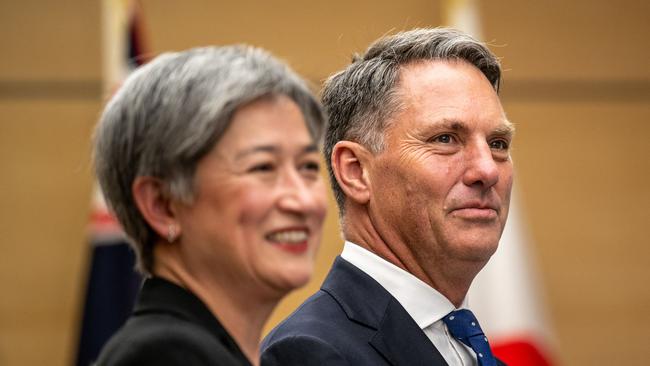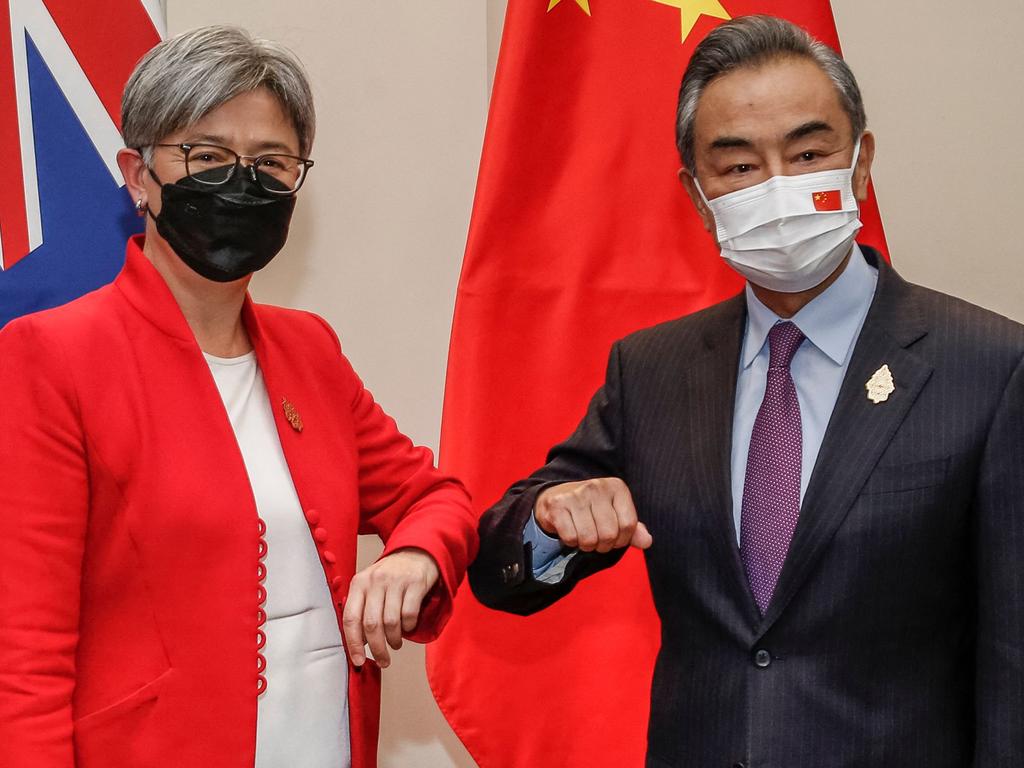
Beijing has tried hard, using intimidation and coercion, to get Australia to change policy in critical areas. It imprisoned innocent Australians on trumped-up charges, it imposed $20bn of trade boycotts on Australia, it worked hard to interfere in our internal politics, it froze all high-level contacts and ministerial meetings and kept up a constant barrage of abuse and intimidation through its official media and sometimes its wolf-warrior diplomats.
And, much to Beijing’s surprise, it failed.
To its credit, the Albanese government toned down Australia’s rhetoric on China but did not compromise on any significant national interest. Nor did it abdicate speaking out against human rights abuses in China, abrogation of civil rights in Hong Kong, and Beijing’s continued intimidation of Taiwan, which Canberra condemns through saying that Australia opposes any unilateral attempts to change the status quo. There is also no relaxation of bans on Chinese investment in our critical infrastructure, and no retreat on growing military cooperation with the US and expanding the ADF.

As part of a wider charm offensive with the West, and in tandem with a determined thaw in relations with Washington, Beijing has now decided to play nice. In so far as this suggests a calmer, more professional and less- fraught day-to-day relationship with China – including greater co-operation in uncontroversial matters – that’s highly welcome.
But Albanese and Wong must keep two key realities front of mind. First, the contradiction between Beijing’s strategic aims for the region and Canberra’s strategic aims is as strong and widespread as ever. Beijing wants the US military gone from the region, opposes AUKUS and the Quad, wants to establish its own military bases in the South Pacific, wants to control our critical infrastructure, and much more.
Second, Beijing is actually better at securing its strategic aims through playing nice than it is by using intimidation.
It wants to set up a dynamic in Australian politics in which Albanese and Wong are expected to deliver a much better relationship with Beijing, and if they don’t they will be judged to have failed.
That’s a very dangerous syndrome for Australia.
Thus opposition foreign affairs spokesman Simon Birmingham was wrong to say Wong’s visit will be judged on whether she gets trade restrictions lifted and Australian prisoners freed.
That formulation gives Beijing all the power to define the success or failure of an Australian government.
That’s a losing equation for Australia. It’s still more likely than not that if the Albanese government holds the line on all key issues, as it should, Beijing will in time turn again to punishment as its favoured mode of engagement.
Partly because her style is calm and measured, Wong is temperamentally well suited to handle these paradoxes. But whatever happens this week, don’t think for a moment our troubles with China are ending any time soon.








It’s good that Foreign Minister Penny Wong is going to China to meet her counterpart, Wang Yi. She must battle now, though, the danger of false and unrealistic expectations.